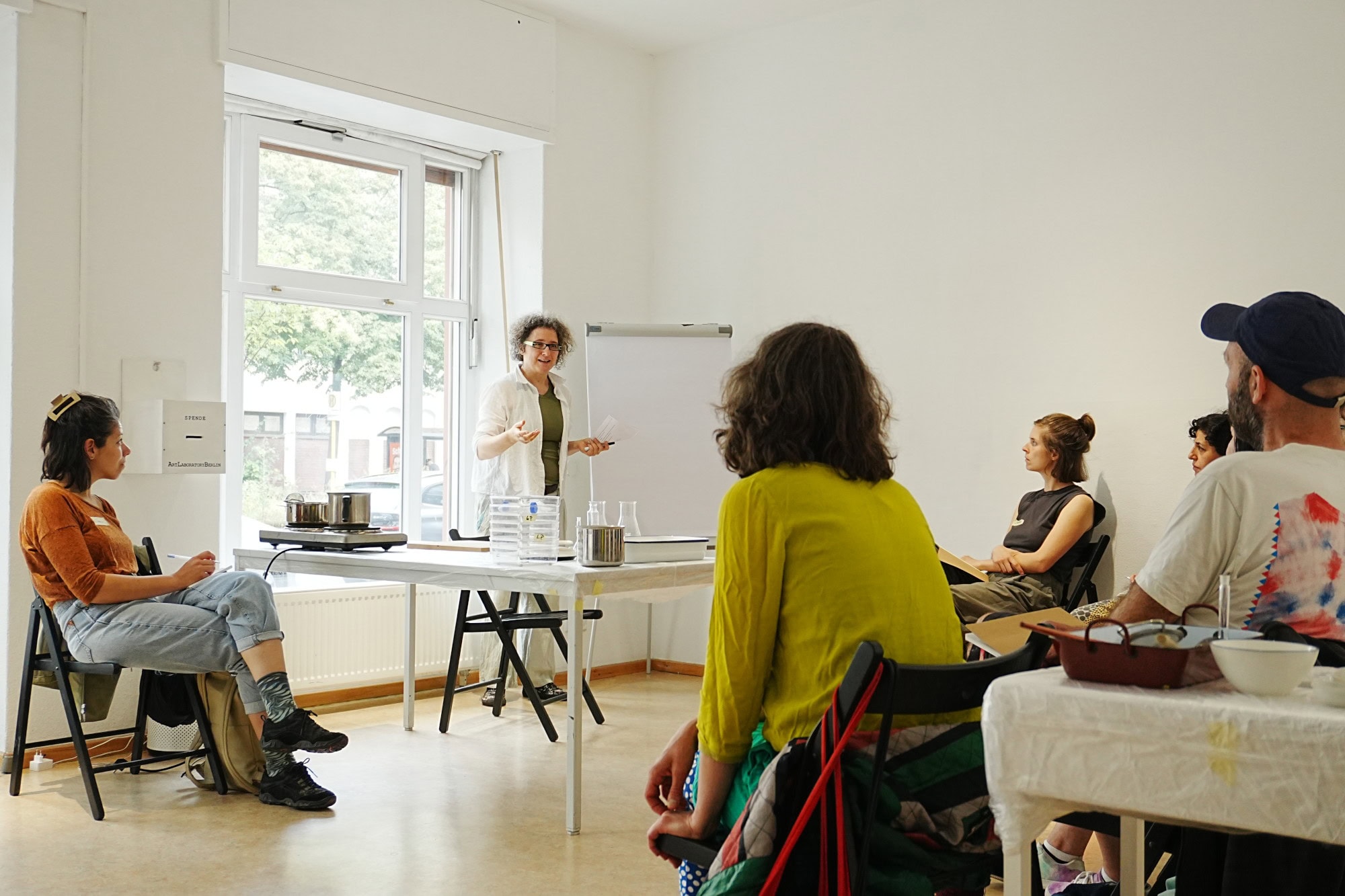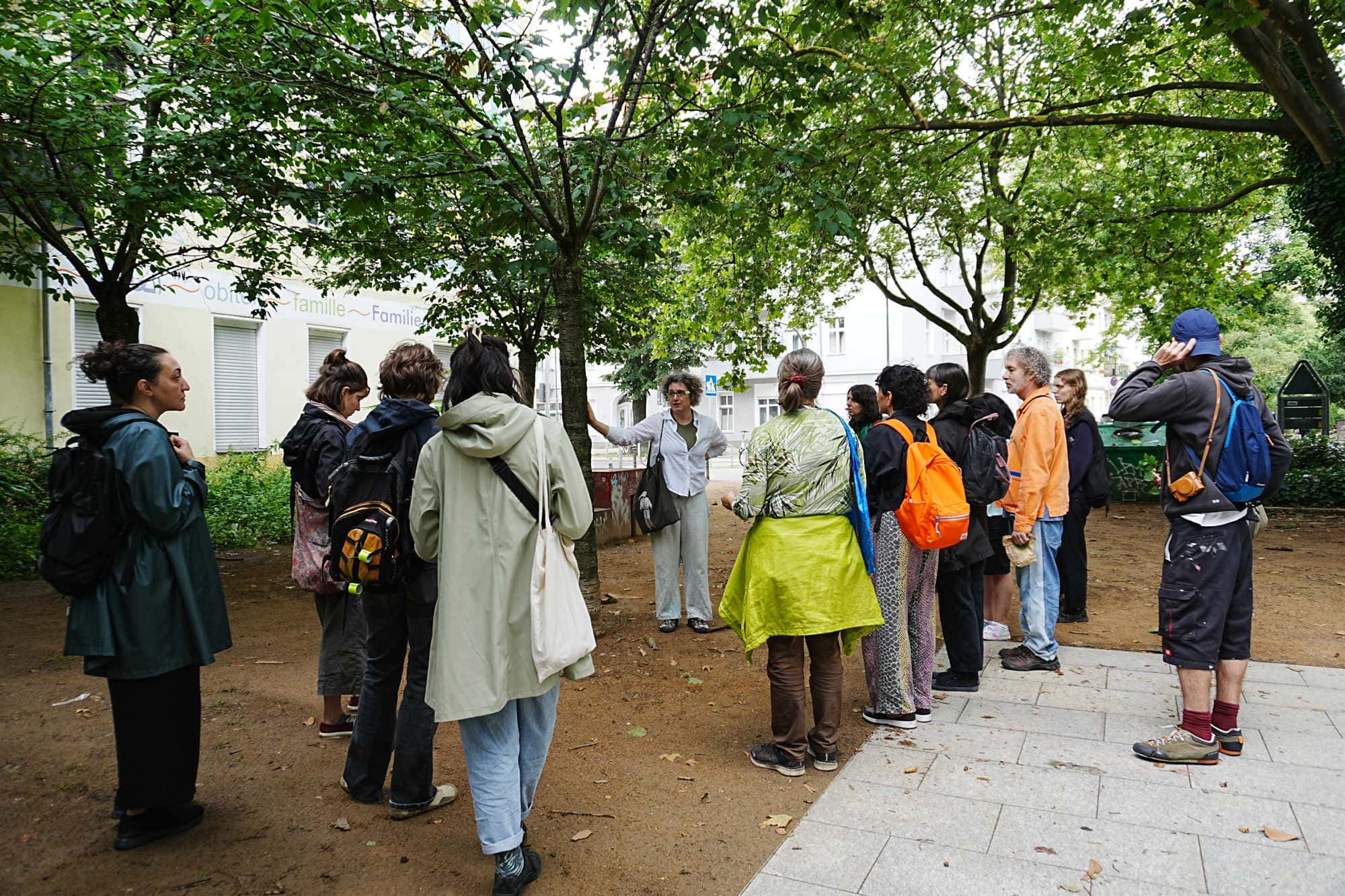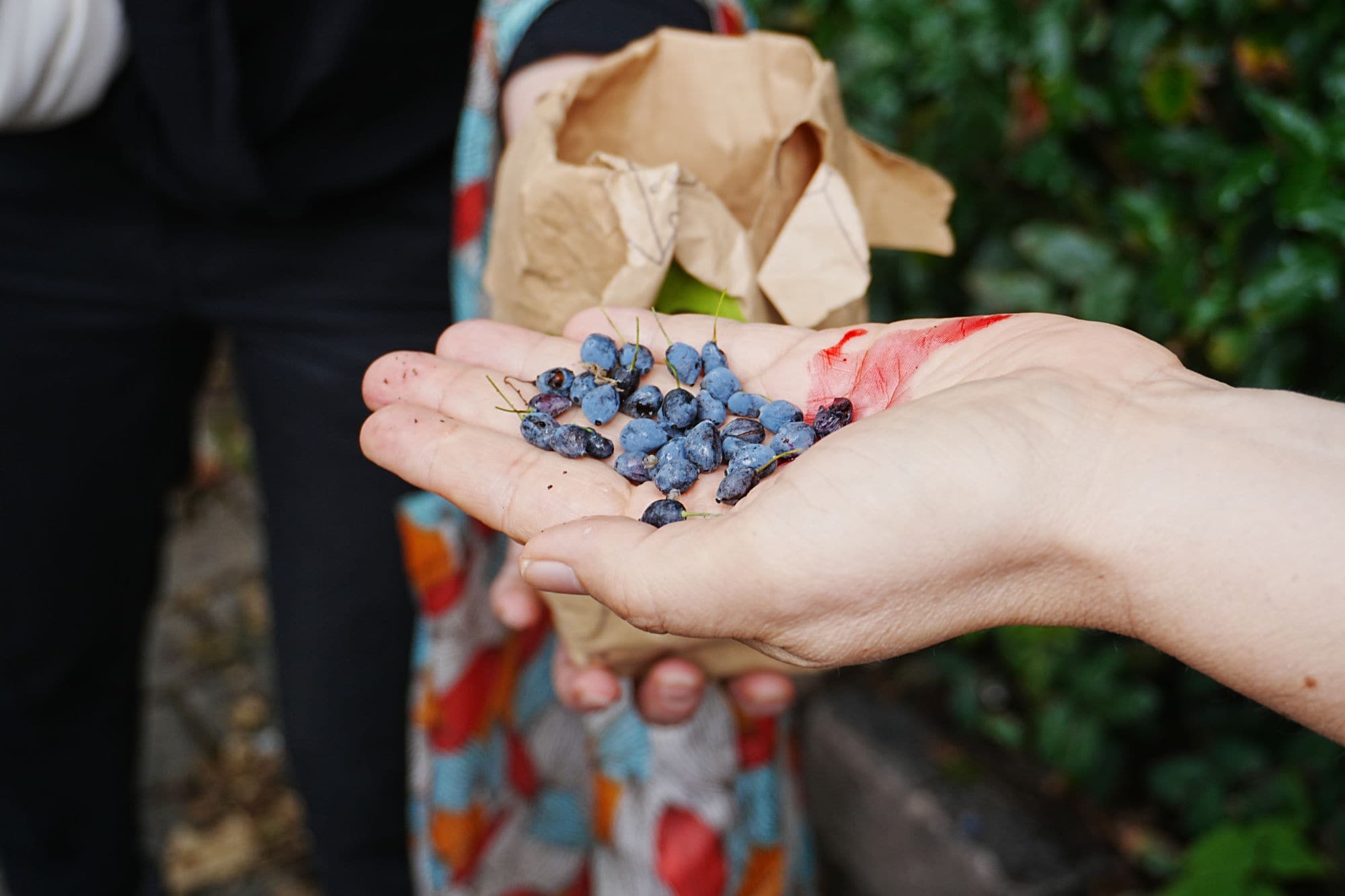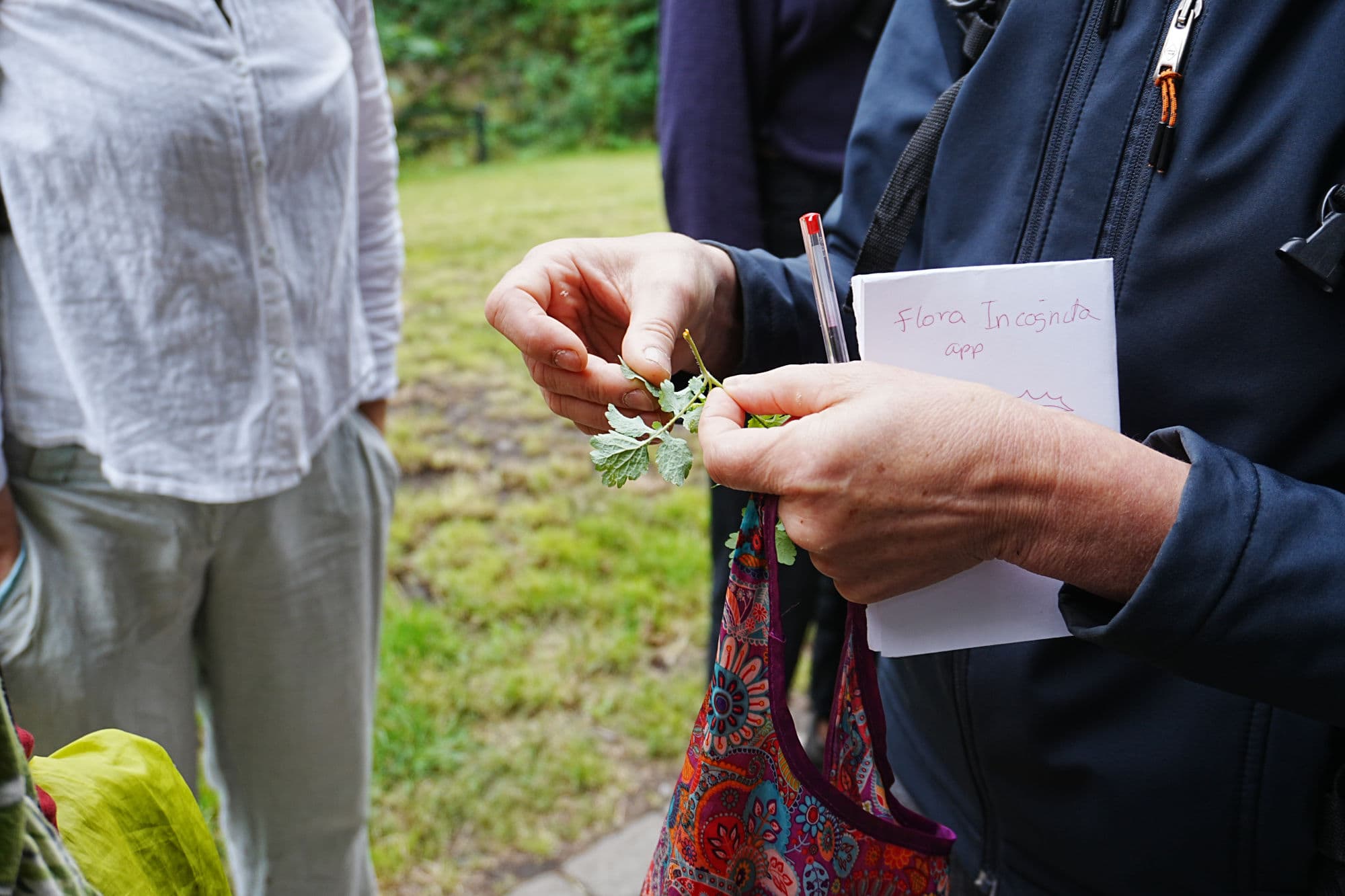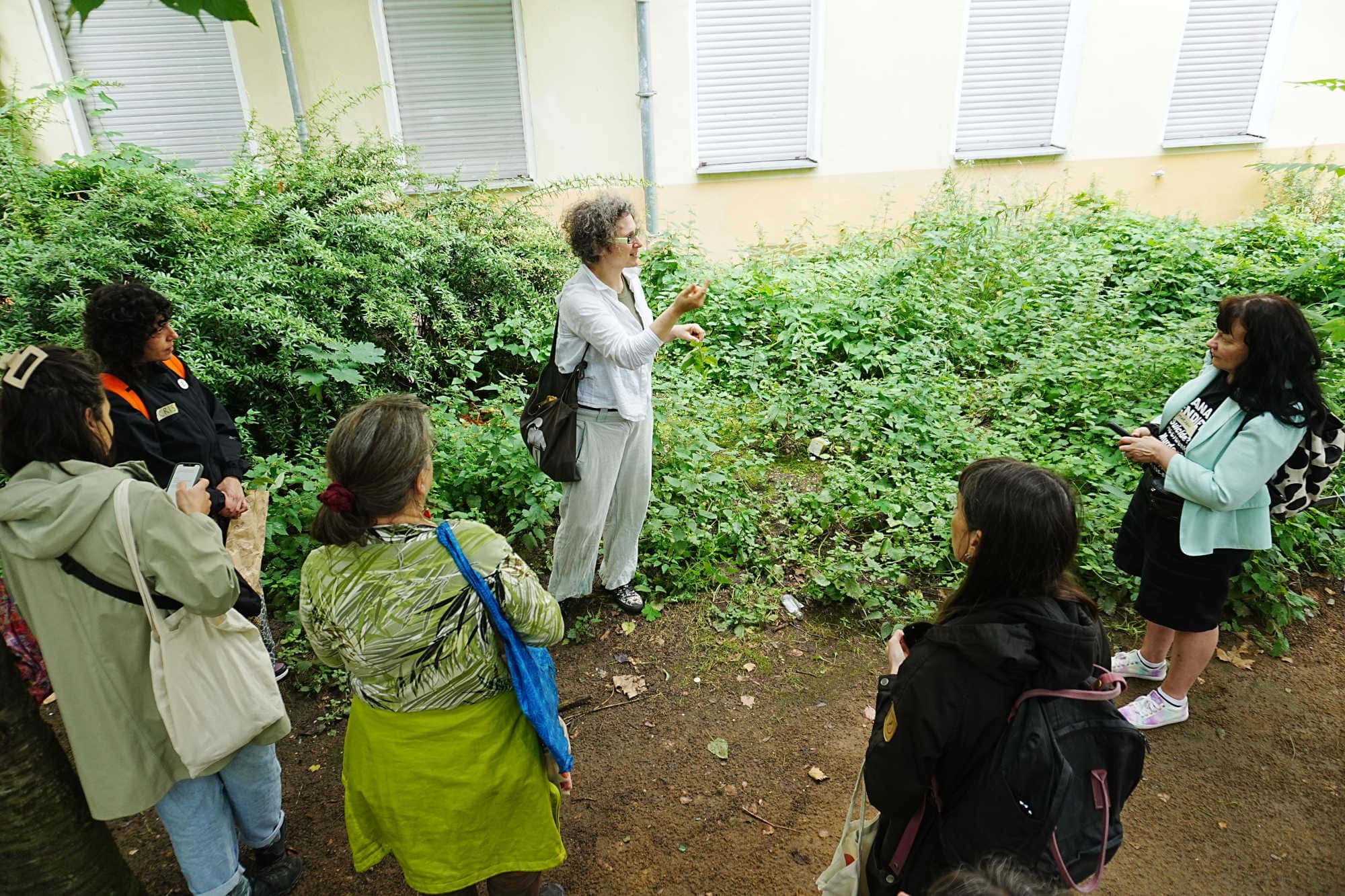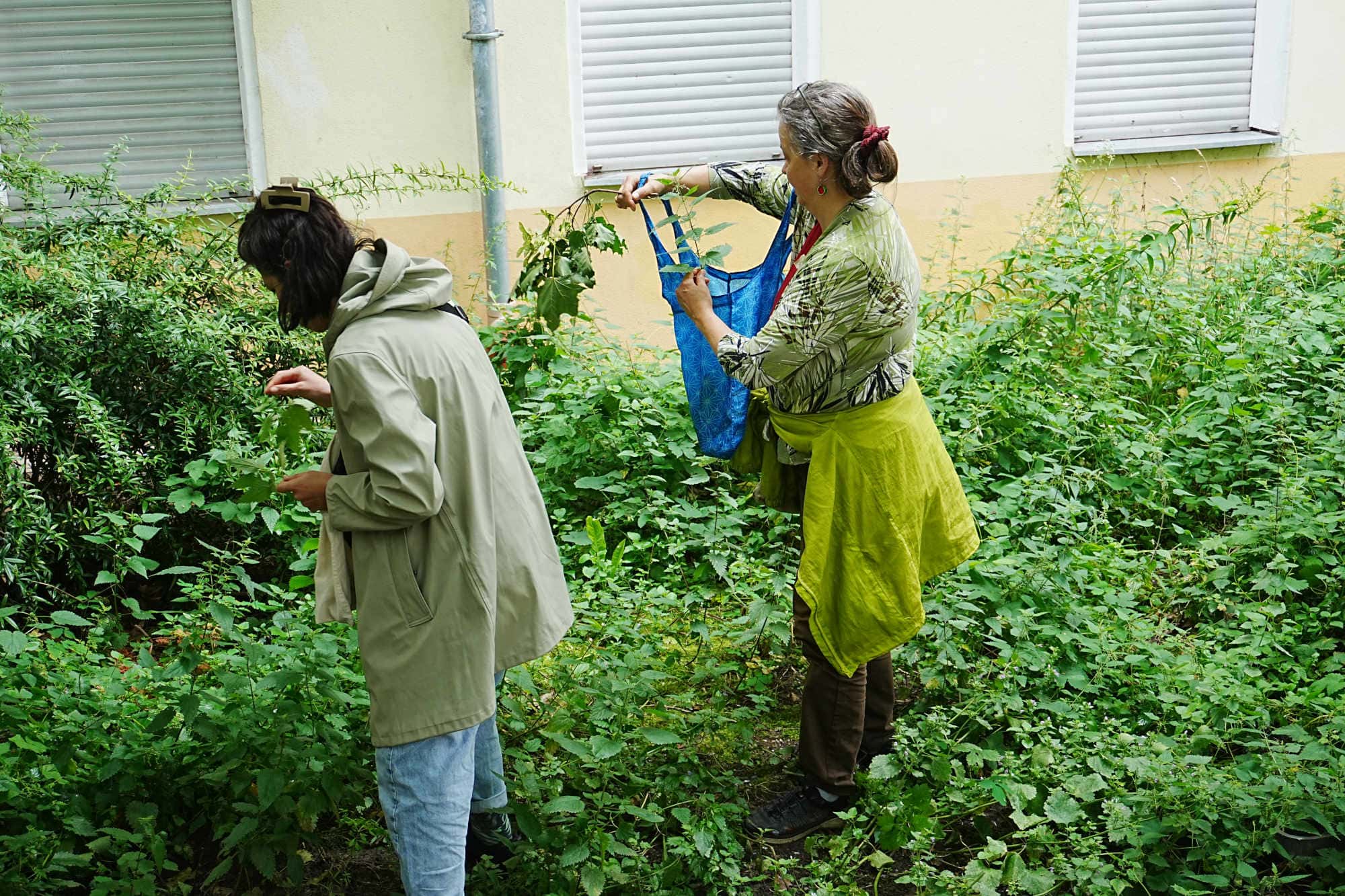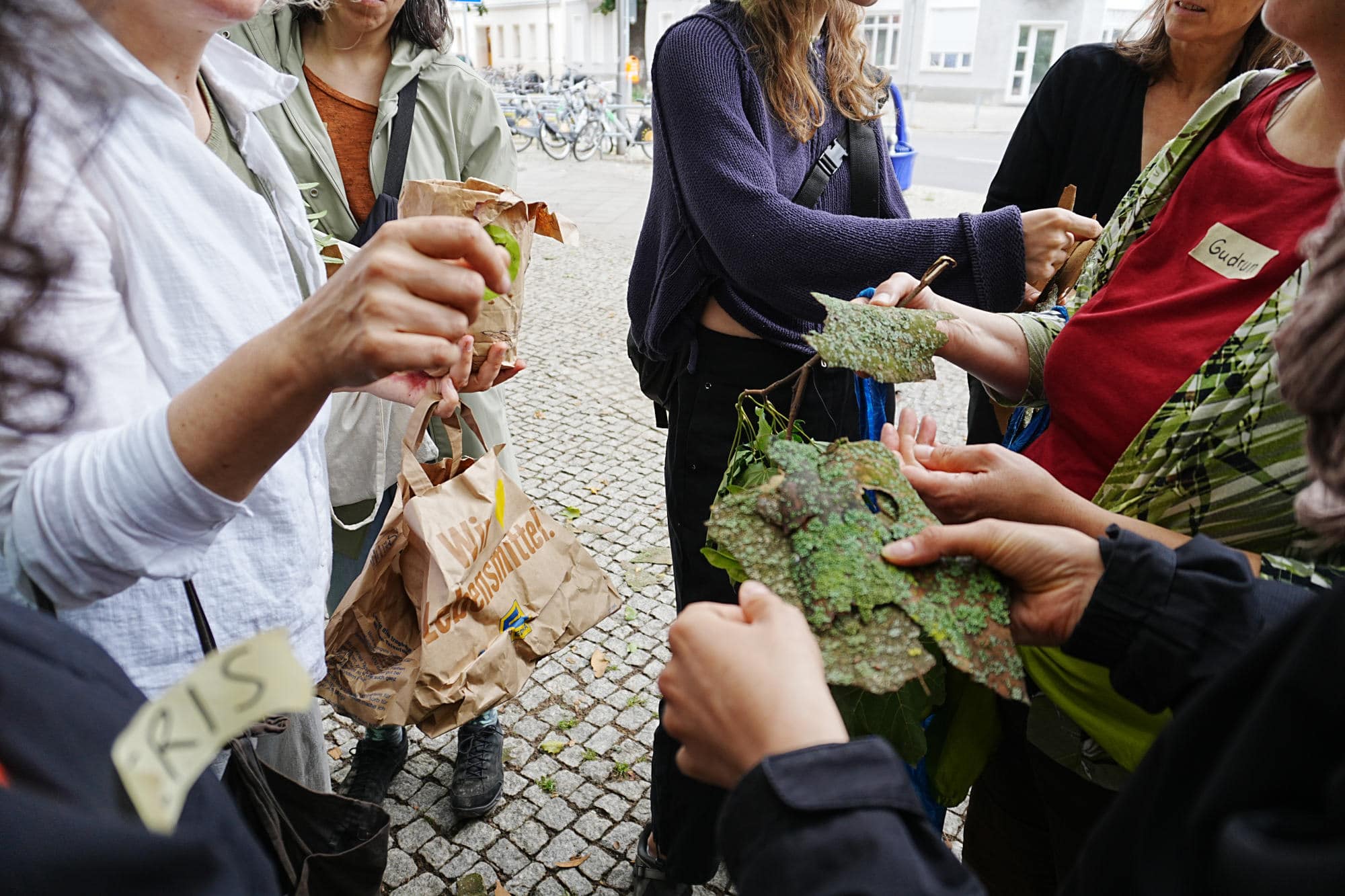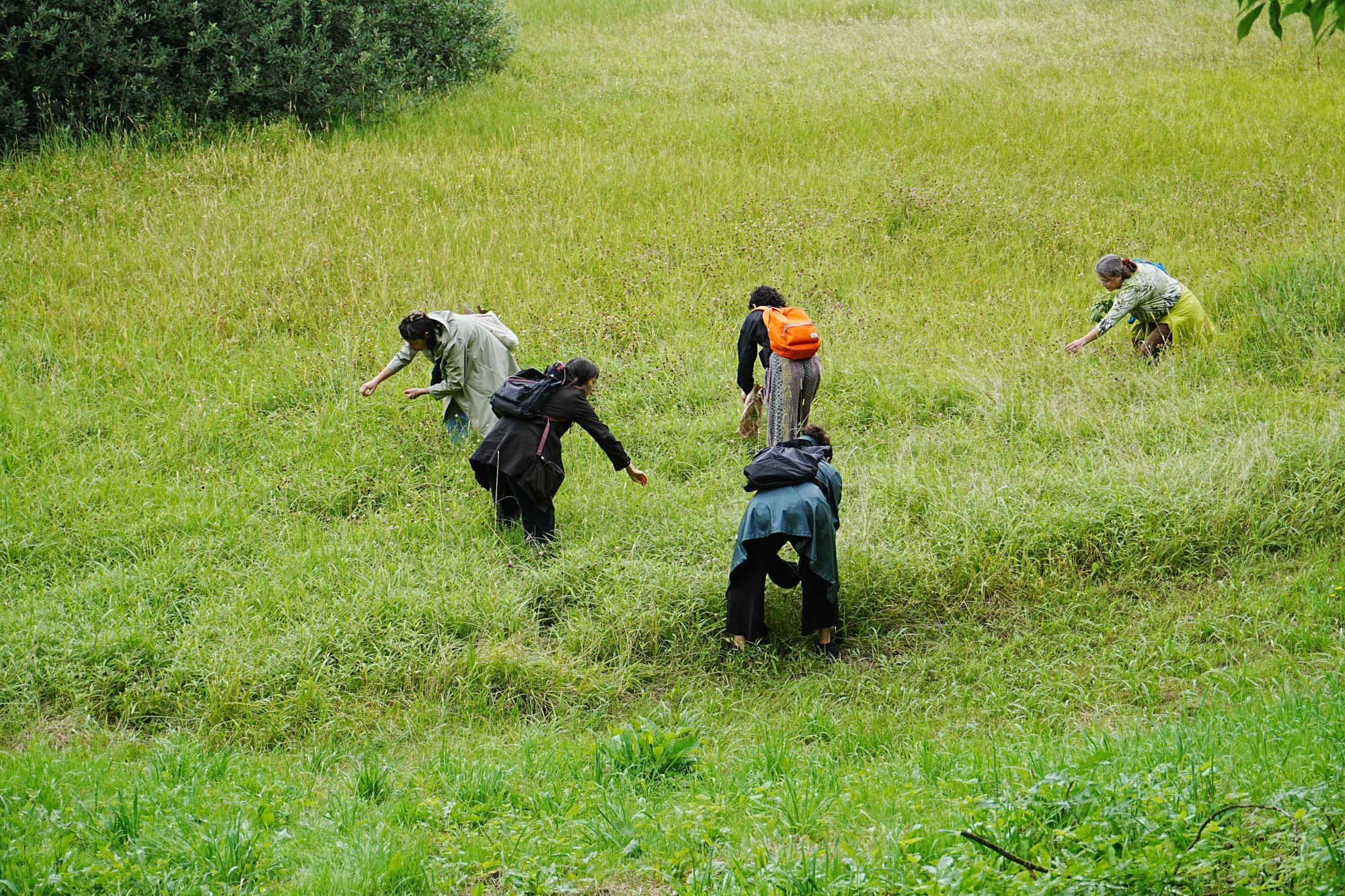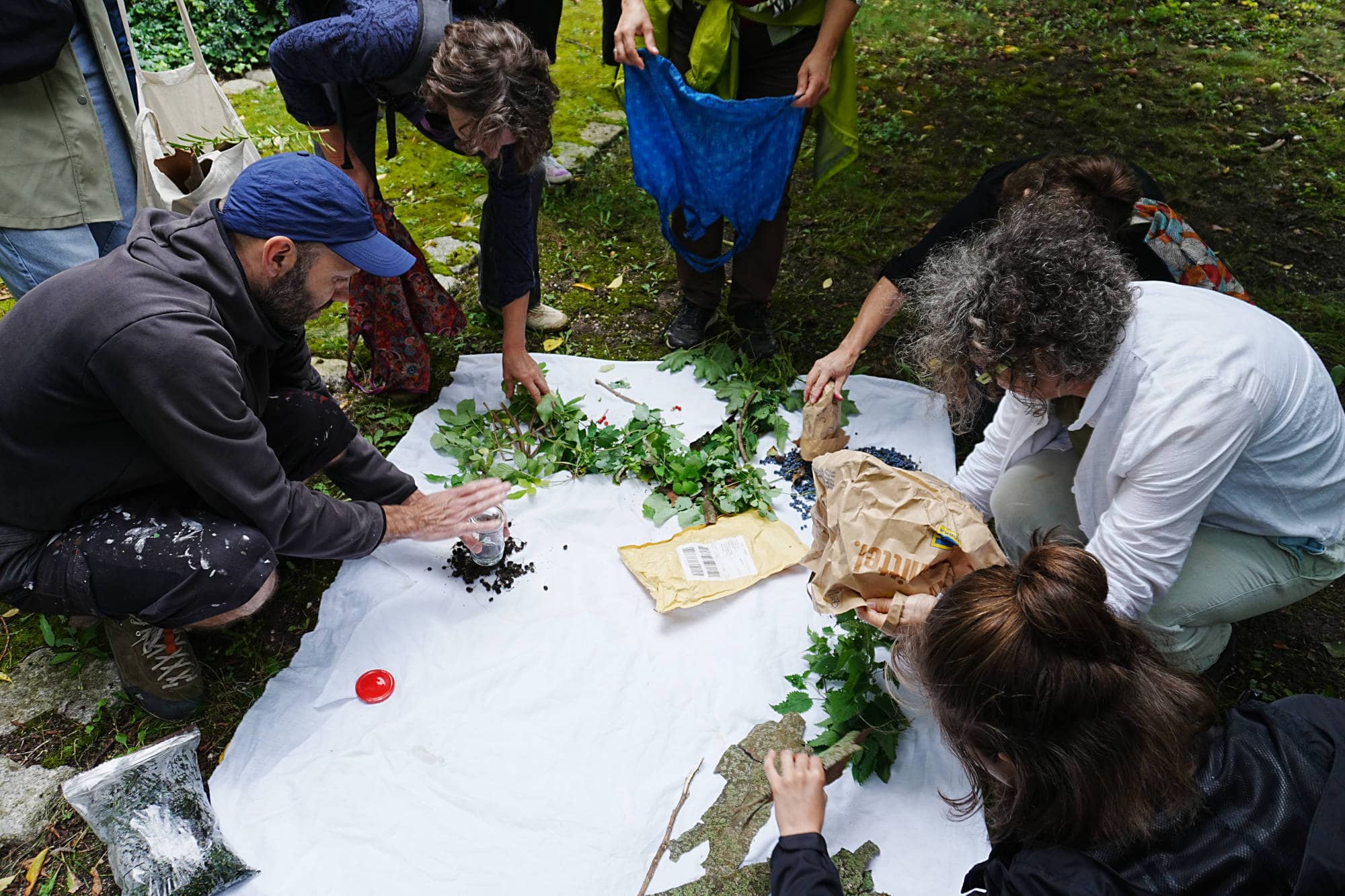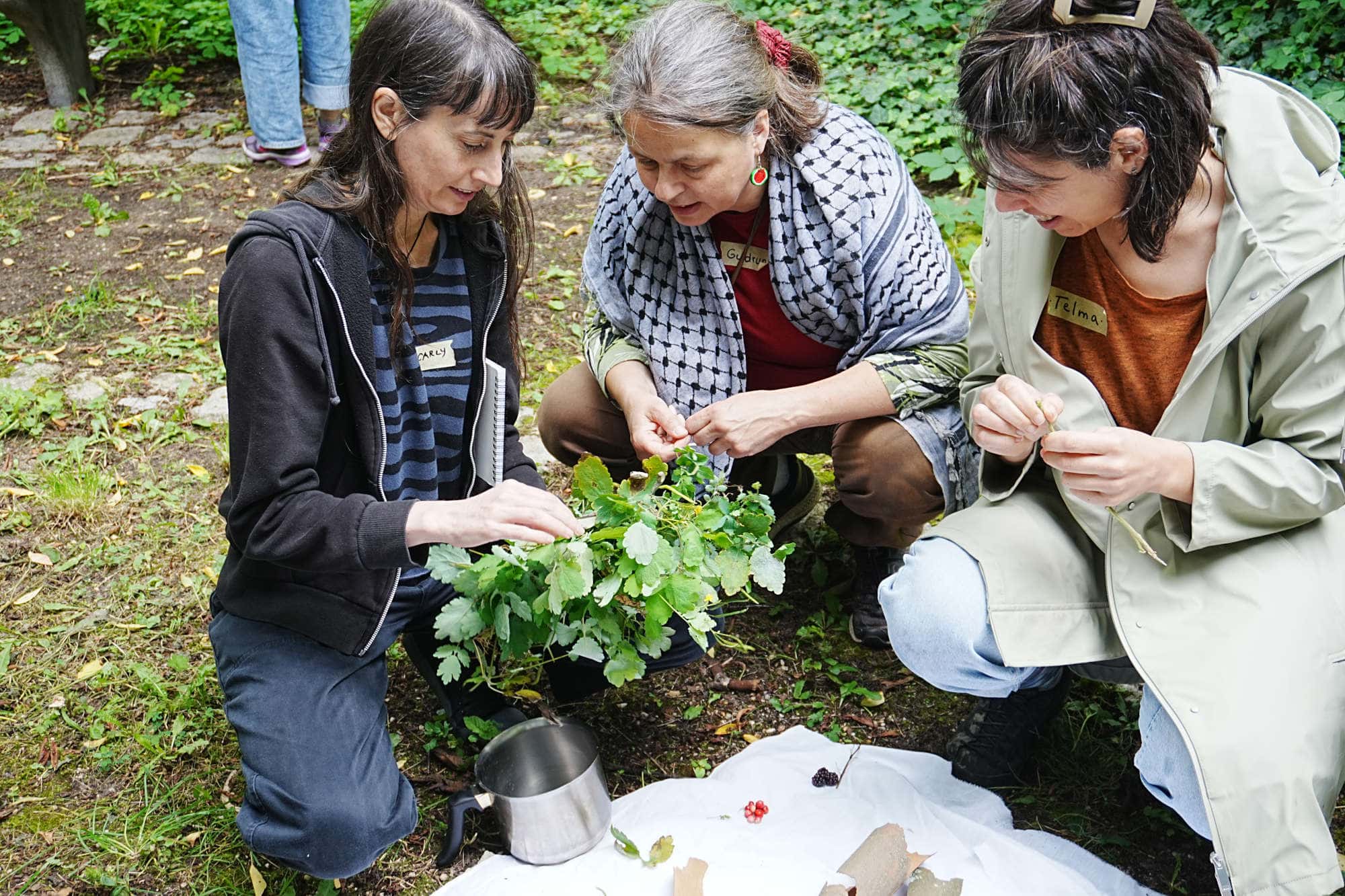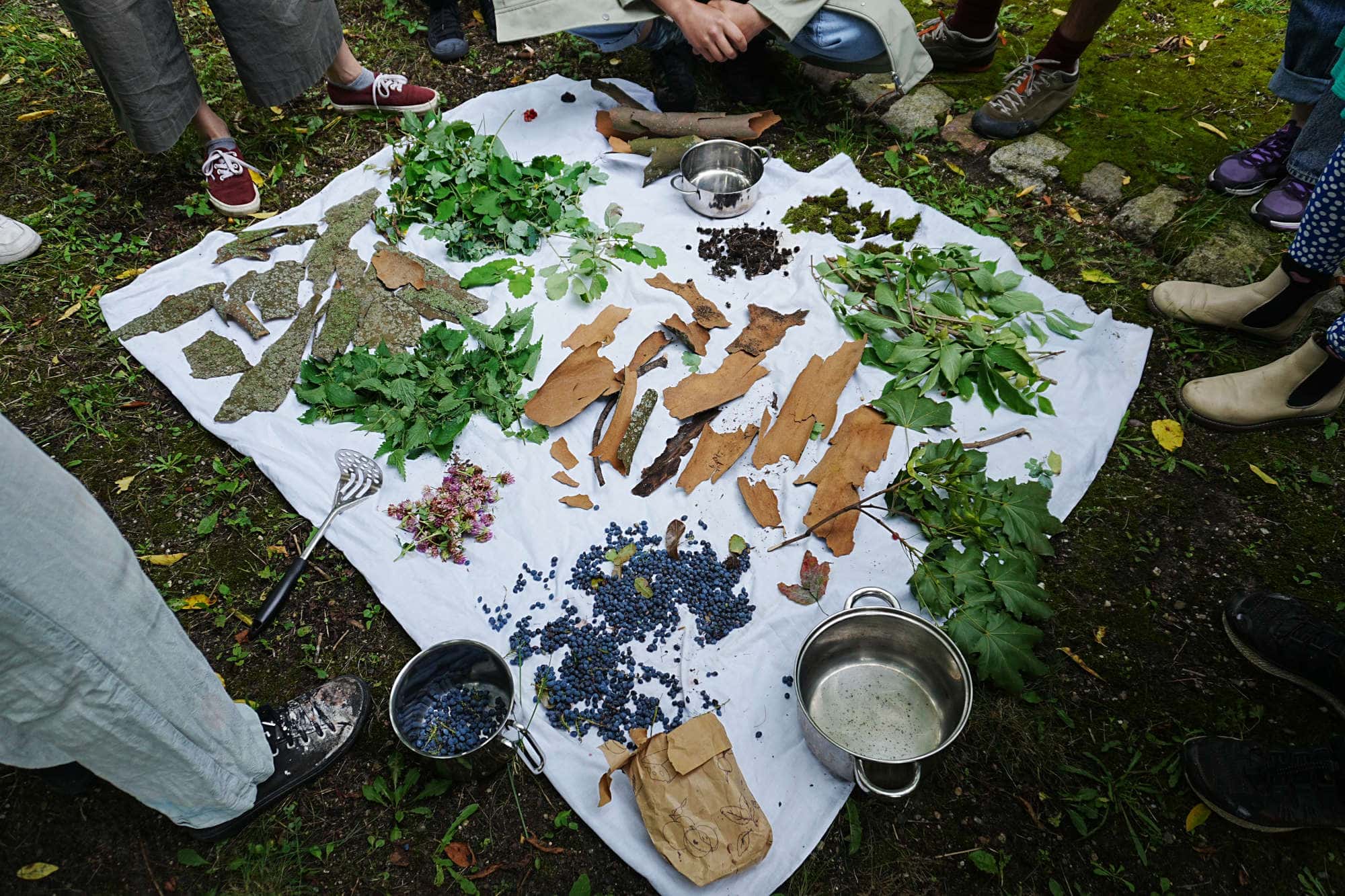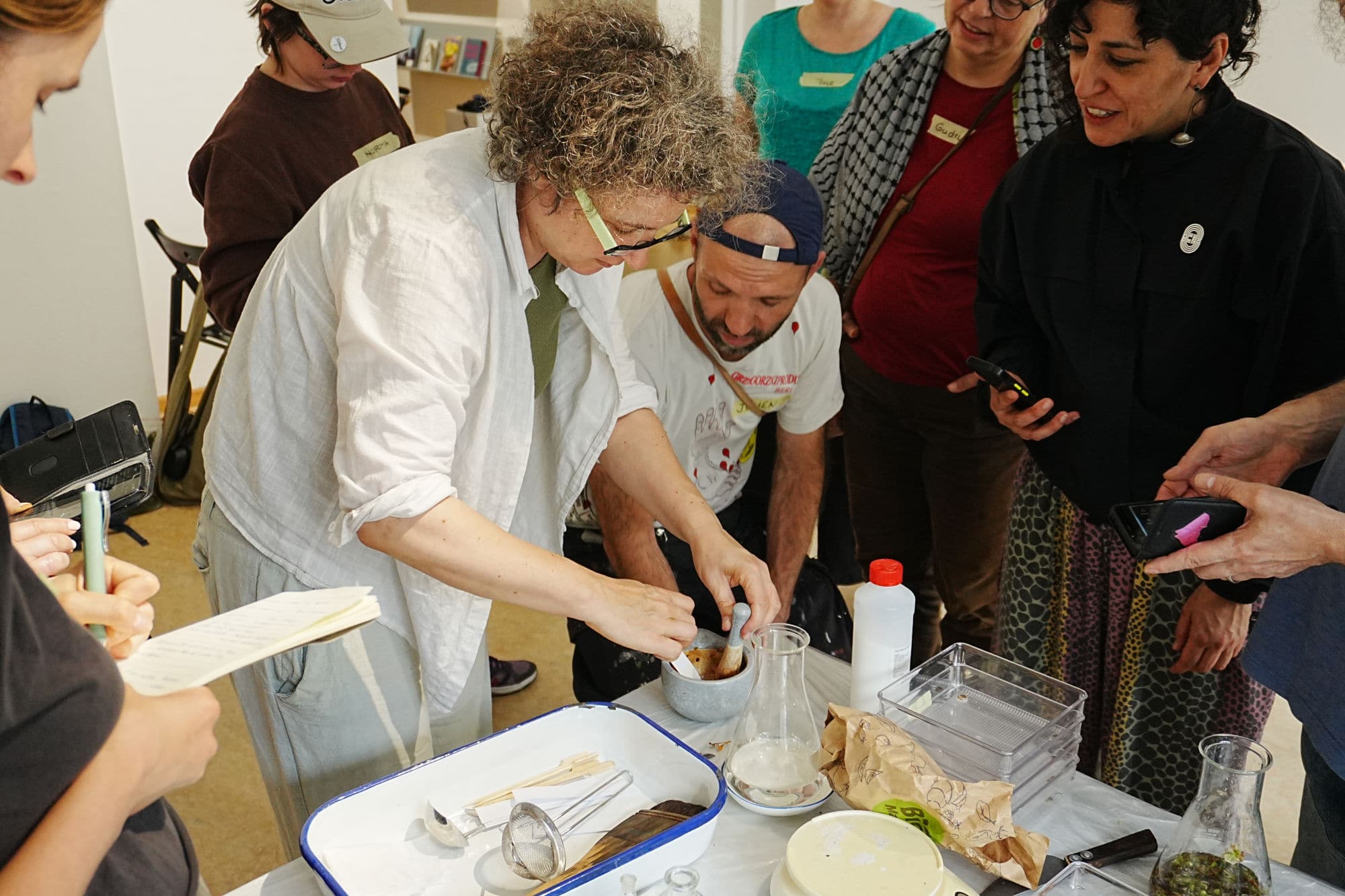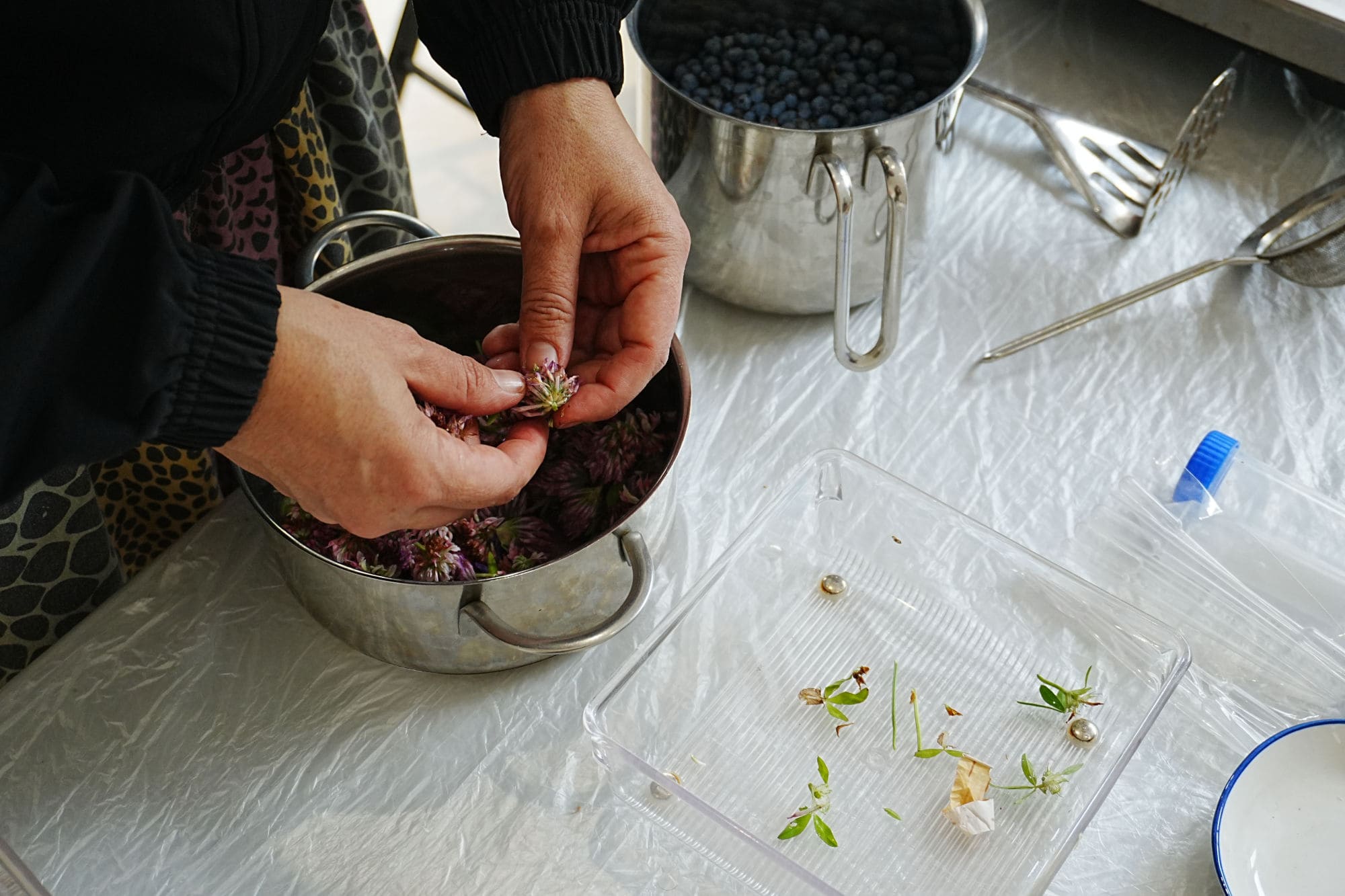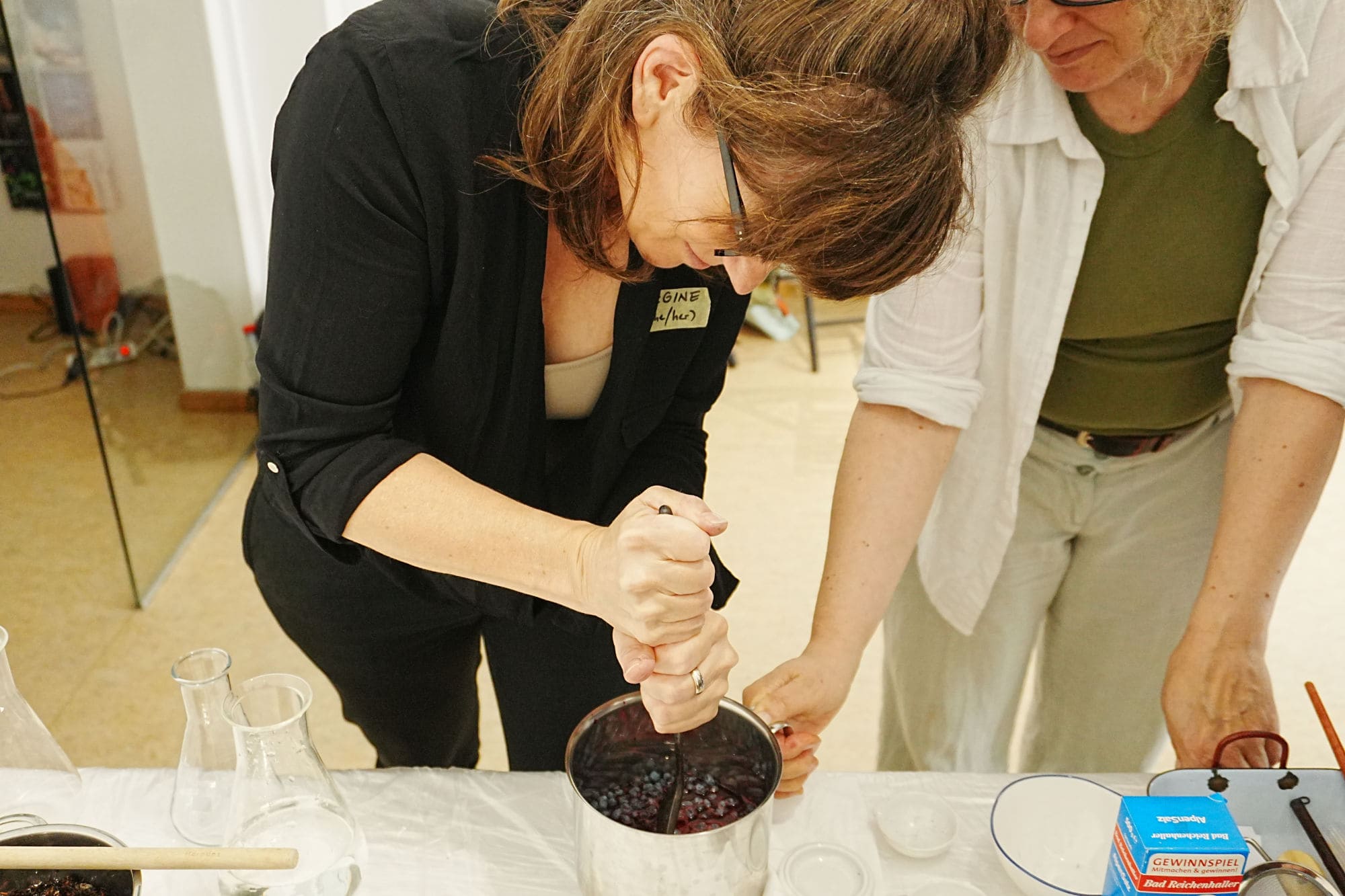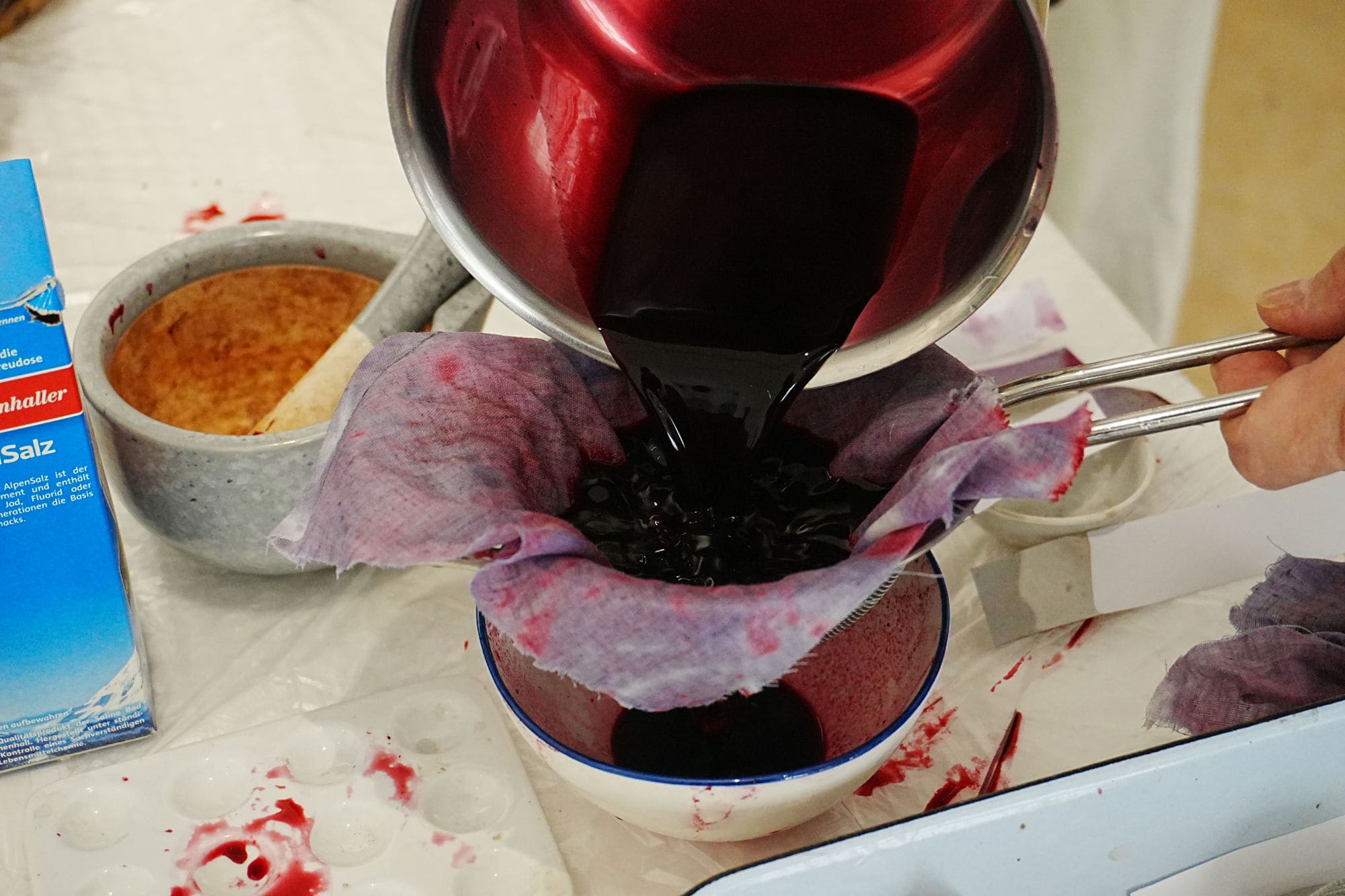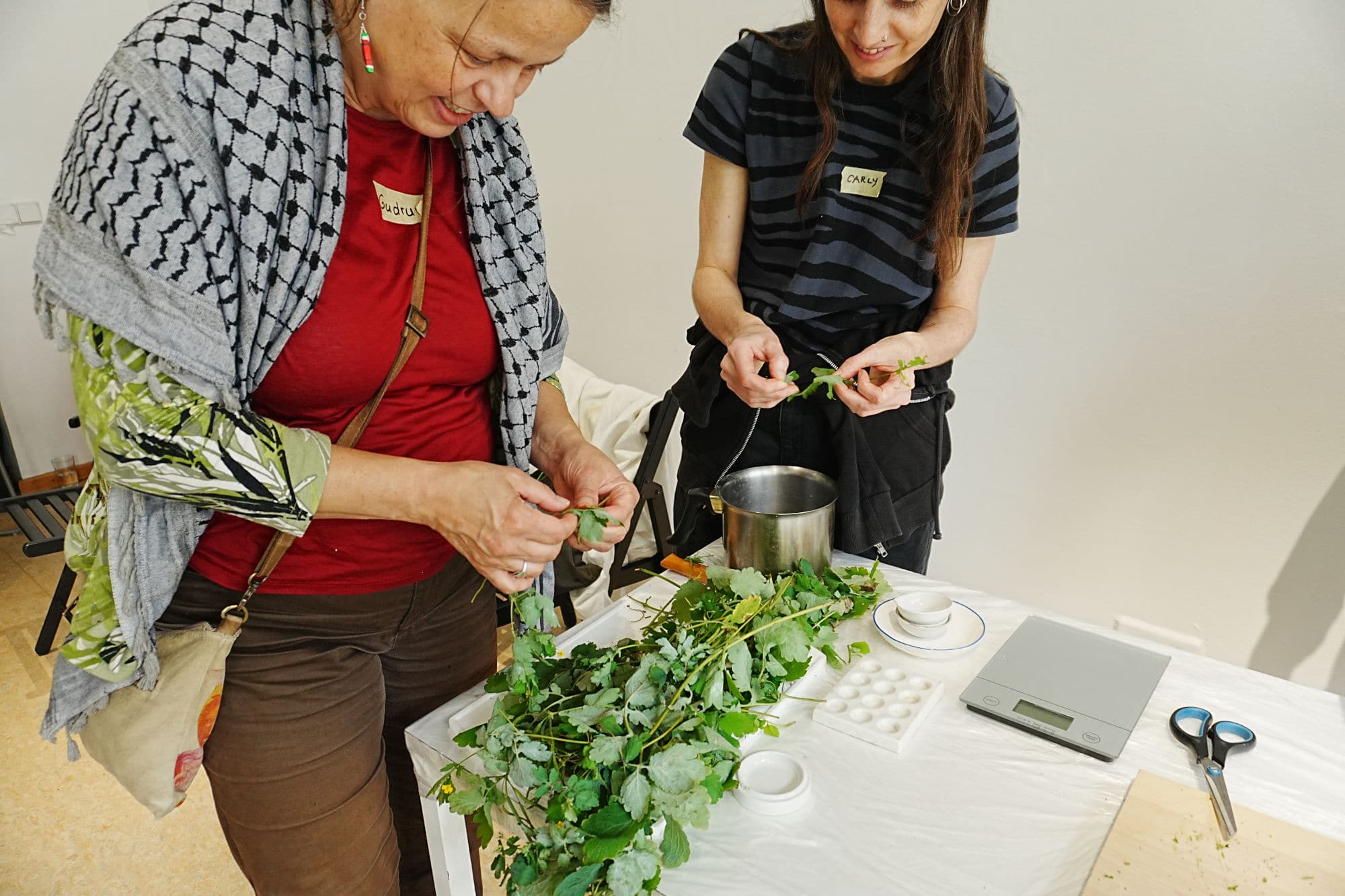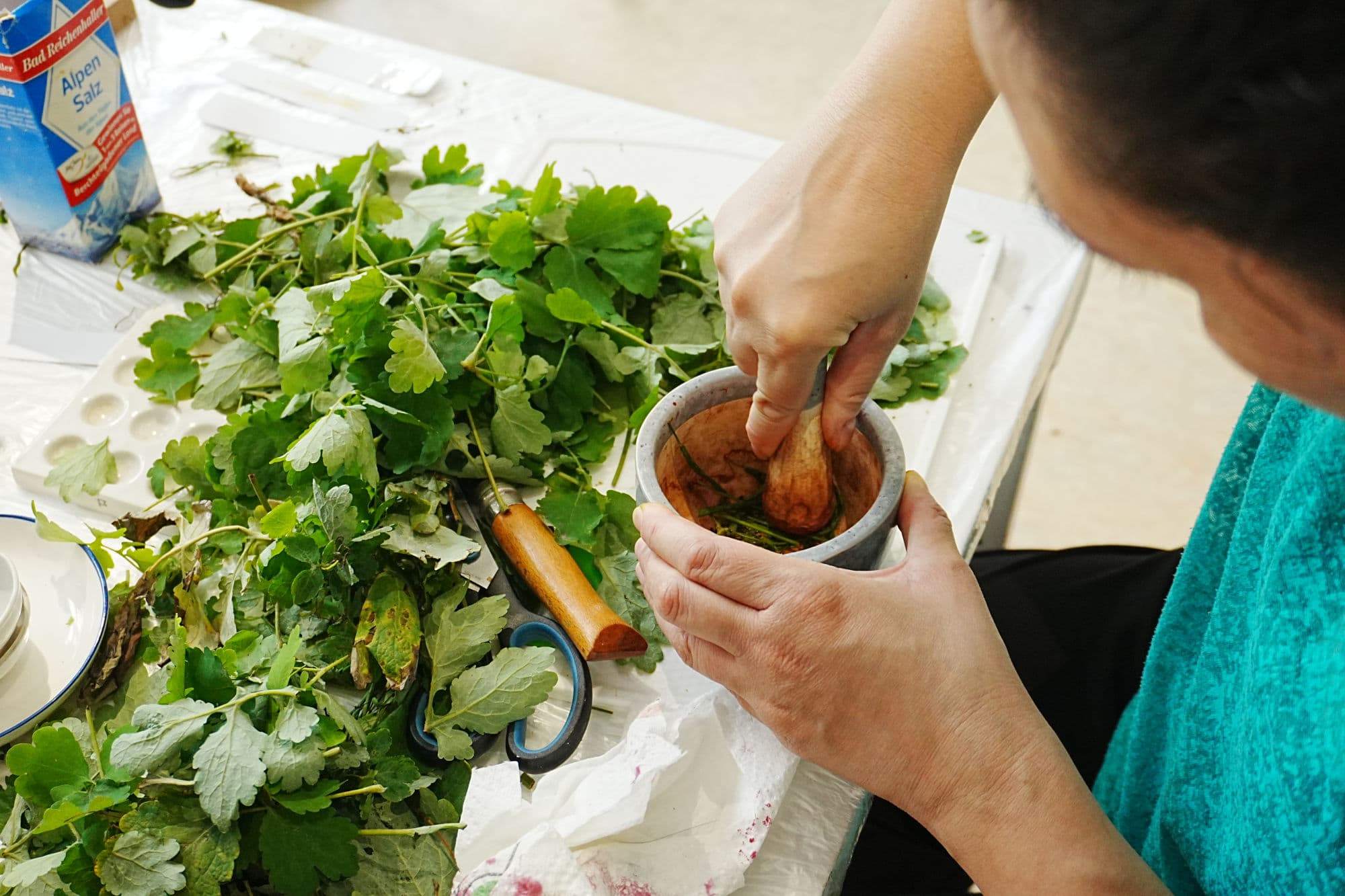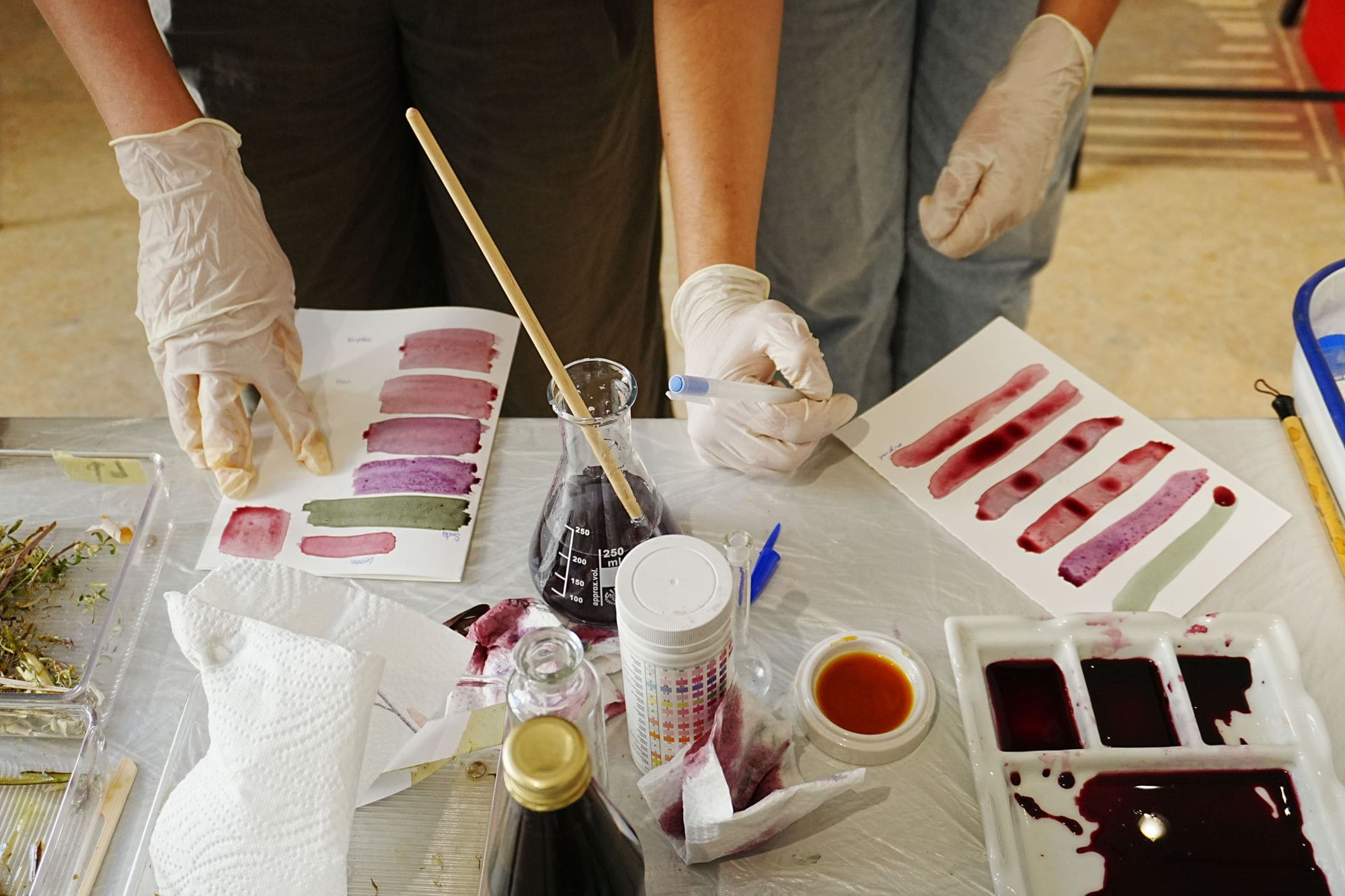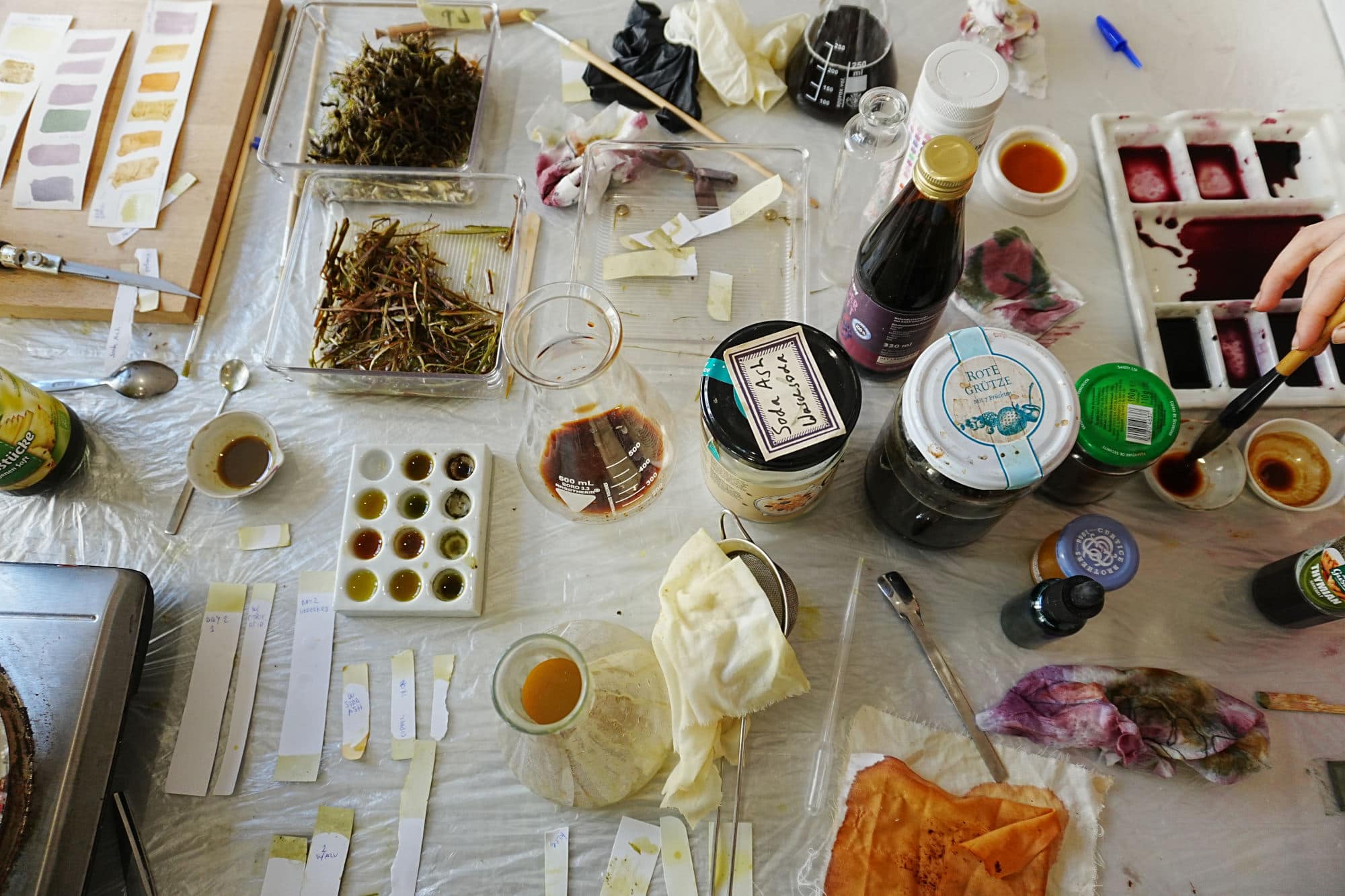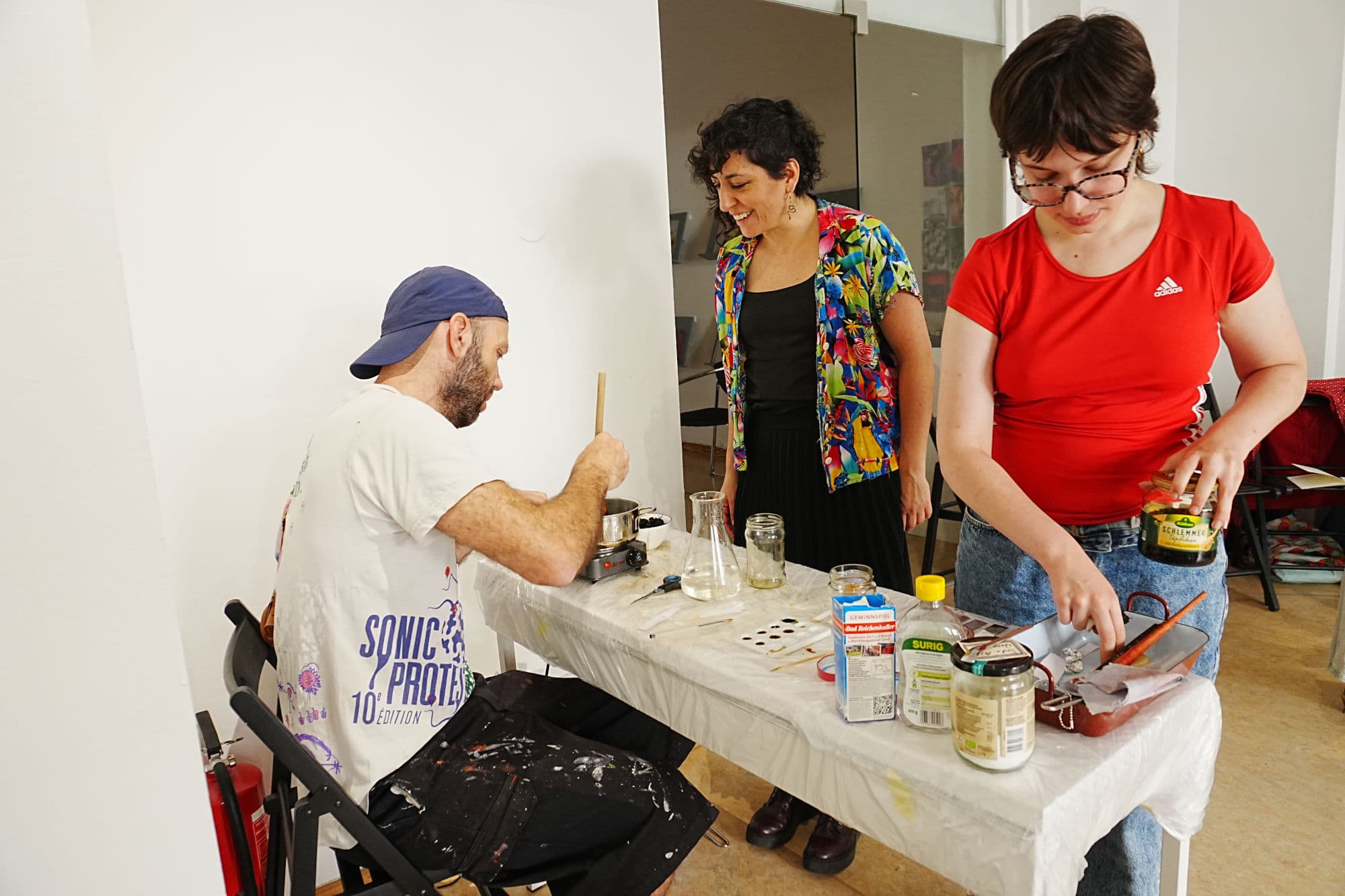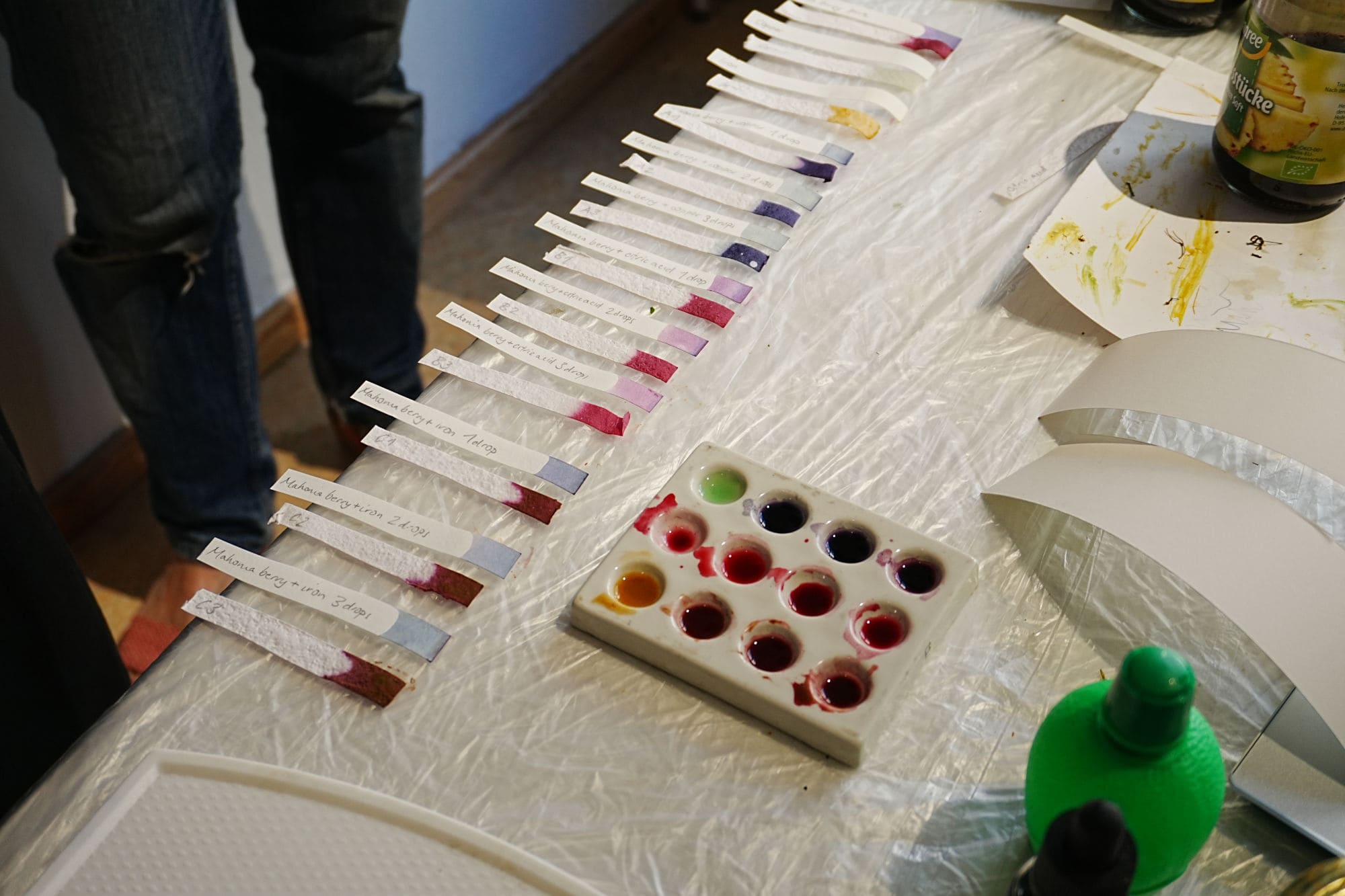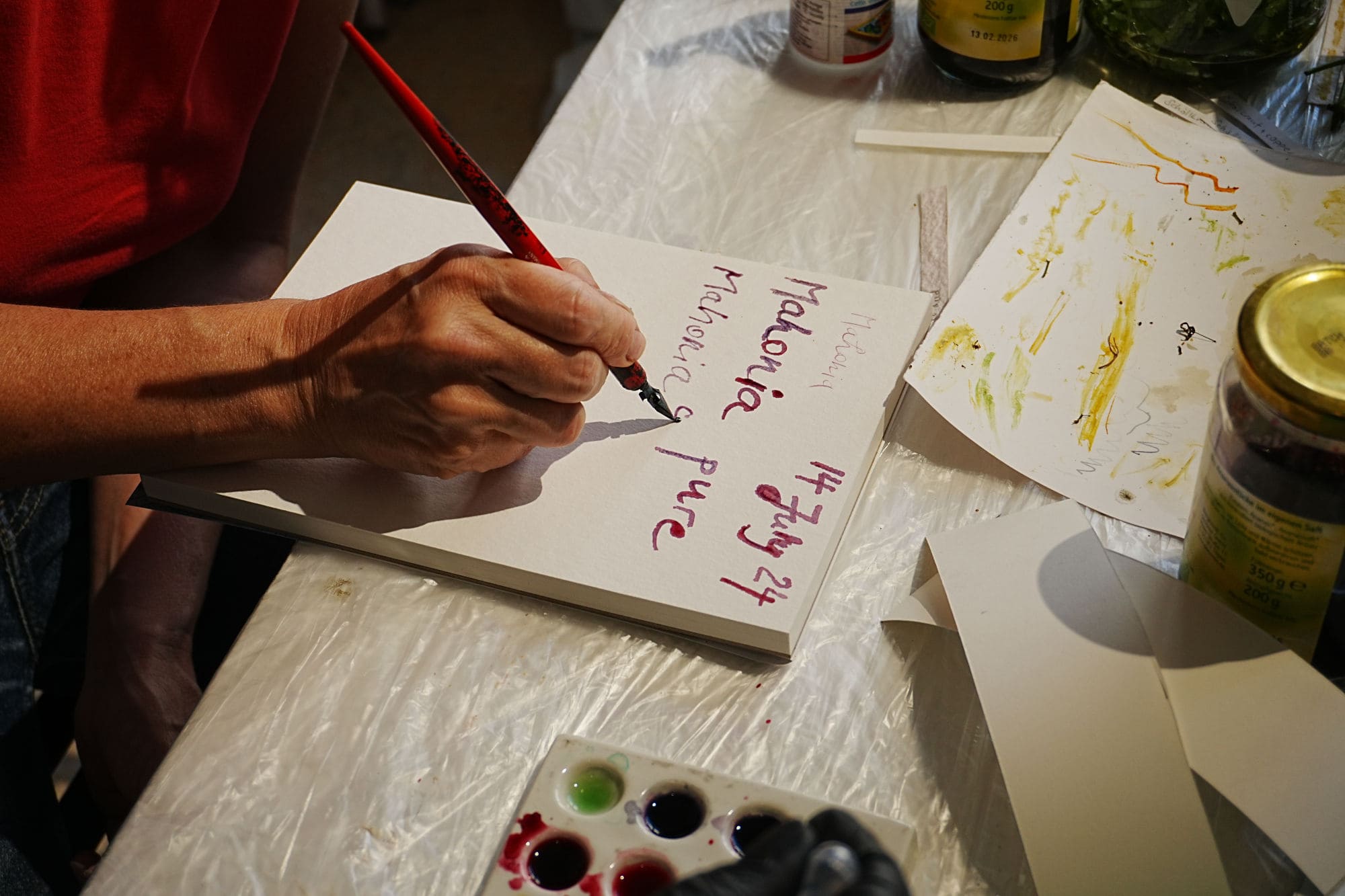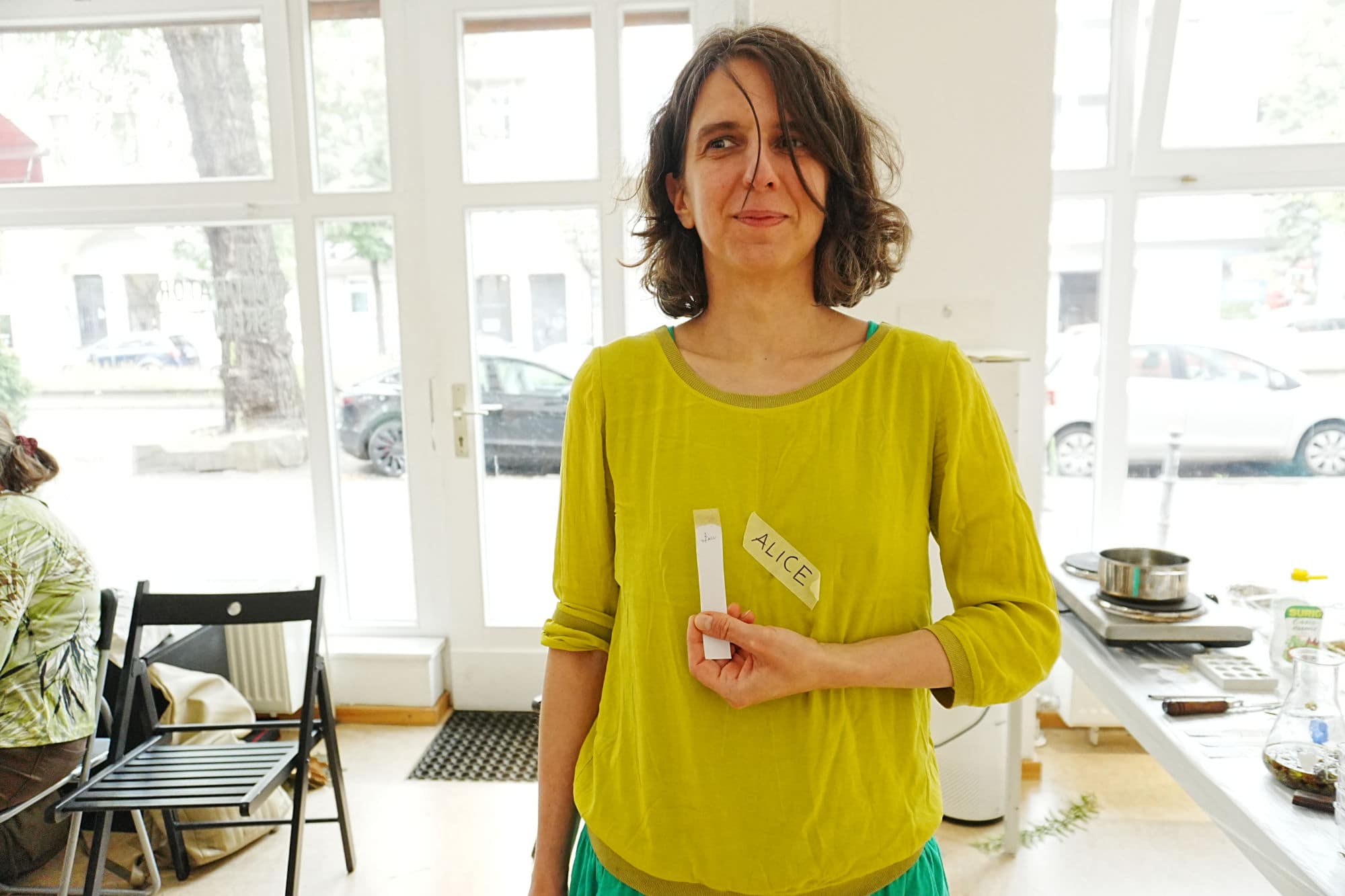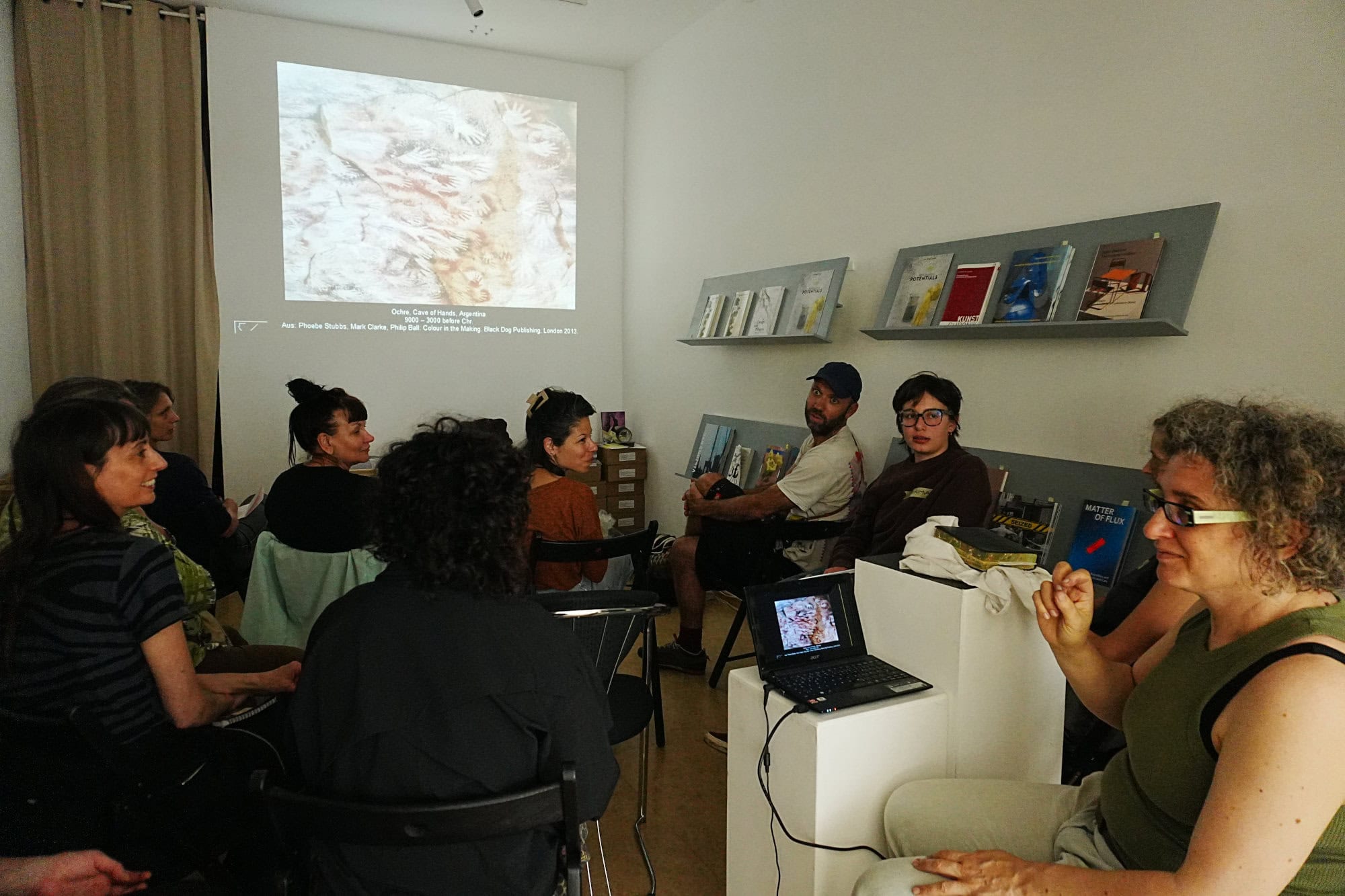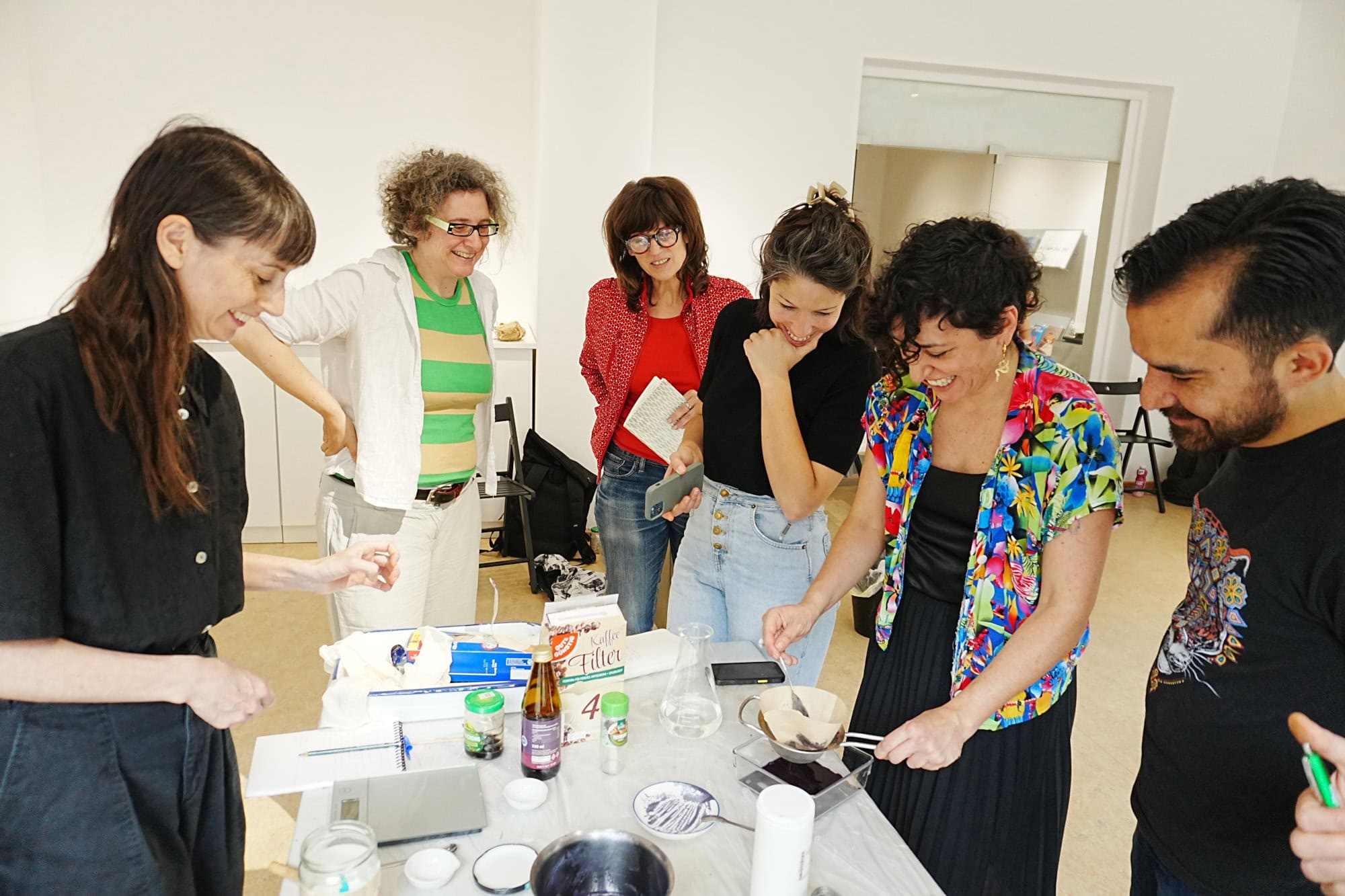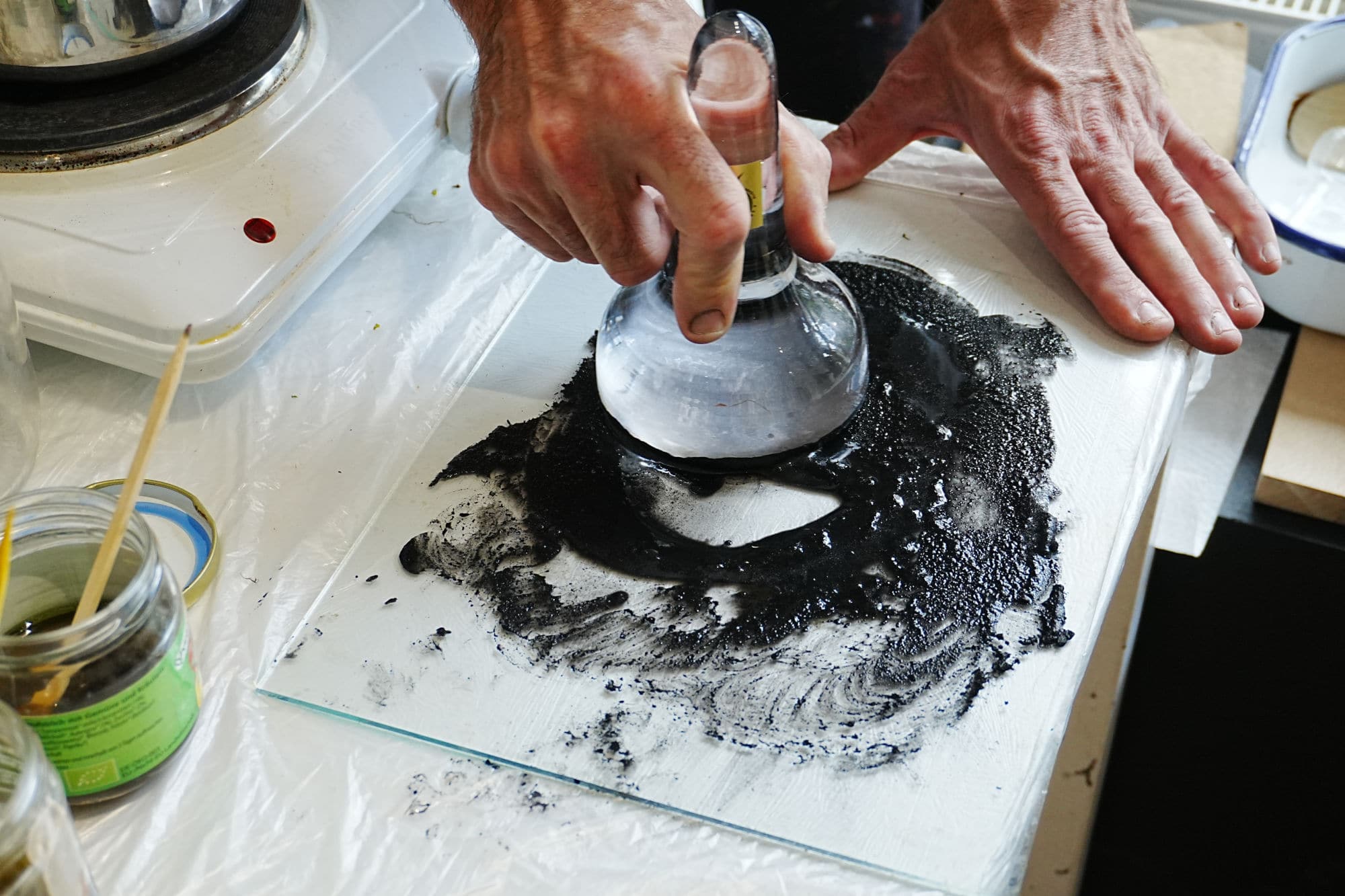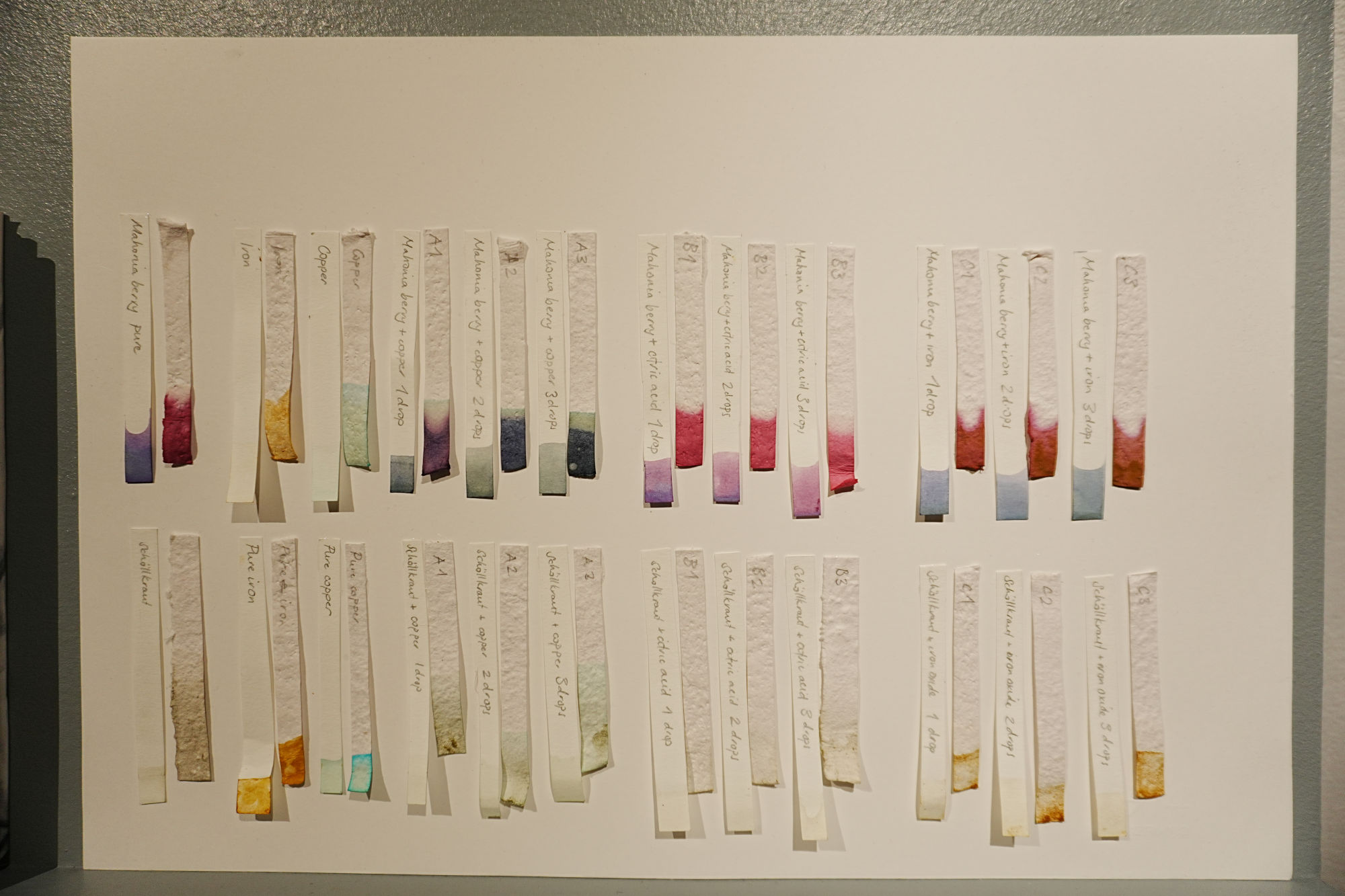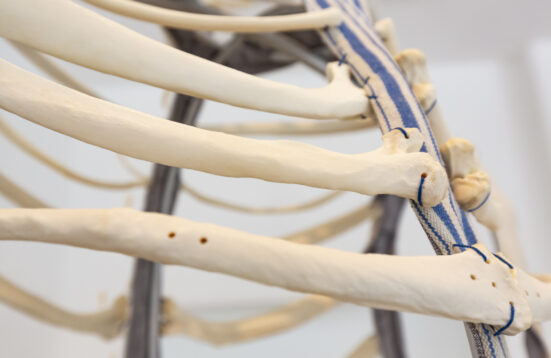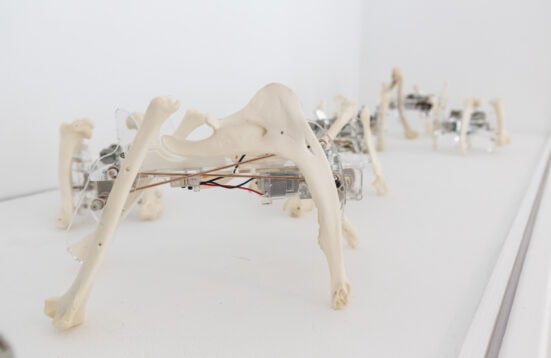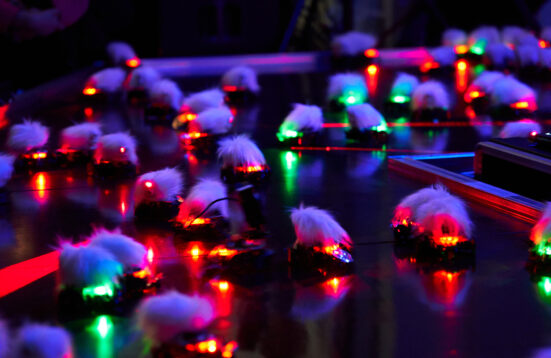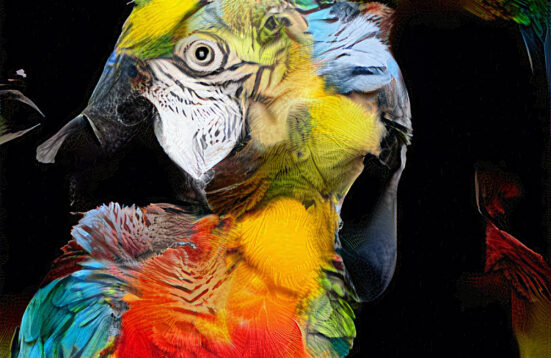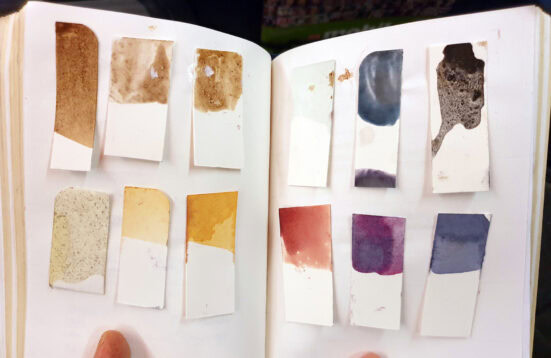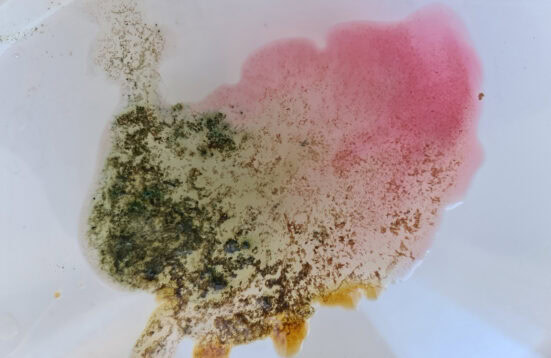Workshop on urban ink and dye extraction from plants, soil and waste.
90% of modern paints are made from petrochemical products. Until the 20th century, the local and more environmentally friendly production of natural paints was commonplace as a technology both in the studio and in the home. Even today, inks and paints can be made from materials collected in urban areas.
Collecting changes the landscape, revealing a world full of friendly, plant-based neighbors. Relationships develop with weeds and piles of rubble. The workshop invites you to experience familiar and as yet unknown urban spaces through colors: What colour-giving plants and minerals can be found in this place, how can places be perceived, understood through colour?
Workshop introduction by Käthe Wenzel. Photo: Art Laboratory Berlin
Foraging walk. Photo: Art Laboratory Berlin
Foraging walk. Photo: Art Laboratory Berlin
Foraging walk. Photo: Art Laboratory Berlin
Foraging walk. Photo: Art Laboratory Berlin
Foraging walk. Photo: Art Laboratory Berlin
Foraging walk. Photo: Art Laboratory Berlin
Foraging walk. Photo: Art Laboratory Berlin
Foraging walk. Photo: Art Laboratory Berlin
Foraging walk. Photo: Art Laboratory Berlin
Foraging walk. Photo: Art Laboratory Berlin
The workshop covers topics ranging from plant blindness, urban ecology, bio-invasiveness and migration to zero waste, queer ecologies and interspecies cooperation, and will focus on collecting, foraging rules, color extraction, modification and conservation.
Hidden Colours Inkmaking workshop with Käthe Wenzel. Photo: Art Laboratory Berlin
Hidden Colours Inkmaking workshop with Käthe Wenzel. Photo: Art Laboratory Berlin
Hidden Colours Inkmaking workshop with Käthe Wenzel. Photo: Art Laboratory Berlin
Hidden Colours Inkmaking workshop with Käthe Wenzel. Photo: Art Laboratory Berlin
Hidden Colours Inkmaking workshop with Käthe Wenzel. Photo: Art Laboratory Berlin
Hidden Colours Inkmaking workshop with Käthe Wenzel. Photo: Art Laboratory Berlin
Hidden Colours Inkmaking workshop with Käthe Wenzel. Photo: Art Laboratory Berlin
Hidden Colours Inkmaking workshop with Käthe Wenzel. Photo: Art Laboratory Berlin
Hidden Colours Inkmaking workshop with Käthe Wenzel. Photo: Art Laboratory Berlin
Hidden Colours Inkmaking workshop with Käthe Wenzel. Photo: Art Laboratory Berlin
Hidden Colours Inkmaking workshop with Käthe Wenzel. Photo: Art Laboratory Berlin
Hidden Colours Inkmaking workshop with Käthe Wenzel. Photo: Art Laboratory Berlin
Hidden Colours Inkmaking workshop with Käthe Wenzel. Photo: Art Laboratory Berlin
Hidden Colours Inkmaking workshop with Käthe Wenzel. Photo: Art Laboratory Berlin
Hidden Colours Inkmaking workshop with Käthe Wenzel. Photo: Art Laboratory Berlin
Hidden Colours Inkmaking workshop with Käthe Wenzel. Photo: Art Laboratory Berlin
Käthe Wenzel is an artist and researcher working with hybrid bodies, queer ecologies, and the structures of urban consumption. She provides machines and survival kits for the navigation of hegemonic culture and explores the knowledge of plants. Wenzel is a professor of aesthetic practice at the European University Flensburg, and she was a Fulbright Exchange Scholar in New York and a Senior Fellow at IFK/Vienna.

